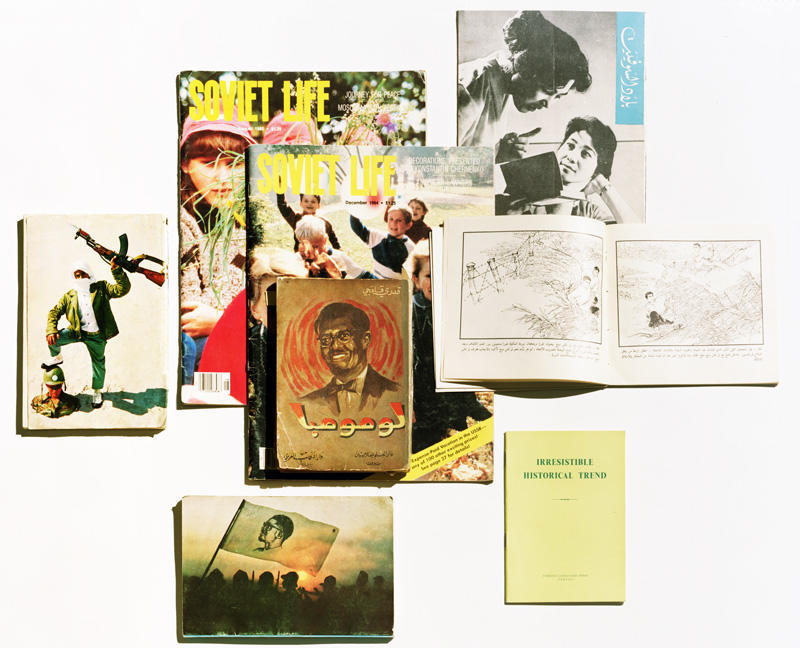
One evening in 1967, a young Armenian-American intellectual named Bob Avakian visited Eldridge Cleaver at his apartment in Oakland. Avakian was startled to find a large poster of Mao on the wall. It seemed an incongruous pairing, Red China and the Black Panthers. Weeks later, Avakian worked up the nerve to ask him about it. “We have that poster of Mao Zedong up on our wall,” Cleaver said, “because Mao Zedong is the baddest motherfucker on the planet earth.”
Avakian would go on to become a Maoist and the chairman of the Revolutionary Communist Party, USA.
Cleaver’s Mao poster had likely arrived via Foreign Languages Press, the Beijing-based publishing house that sent vast reams of cheaply printed Marxist books, pamphlets, and posters out into the world in over a dozen languages. During the Cultural Revolution, FLP went into overdrive, producing complete and selected works of Marx, Engels, Lenin, Stalin, and Mao, as well as more obscure titles with spectacular names like Irresistible Historical Trend, Long Live the Dictatorship of the Proletariat, and Exploring the Secrets of Treating Deaf-Mutes; chapbooks for revolutionary operas by Mao’s wife, including Taking Tiger Mountain by Strategy and Red Detachment of Women; and inspirational booklets like Forty-One Red Hearts Beat with Chairman Mao Forever and Quotations from Chairman Mao Zedong, better known as The Little Red Book. (Copies of these publications can sometimes be found at Revolution Books, the RCP-USA’s bookstore, though generally at bourgeois prices.)
In 1968 over a million Chinese marched through Beijing in solidarity with the black power movement in the United States.
This was the golden age of communist internationalism — and of the communist internationalist pamphlet. From its headquarters in Havana, the Organization of Solidarity of the Peoples of Africa, Asia, and Latin America (aka OSPAAAL) inundated college campuses across the globe with copies of Tricontinental, its unflinchingly third-worldist bimonthly magazine. A copy of the March 1971 issue, with a cover story on the Young Lords, a New York-based, Panther-affiliated, Puetro Rican street gang, passed through the research library of the Palestine Liberation Organization before settling into a disused book store near the American University in Beirut, where we purchased it for 75 cents.
The bookstores of Beirut bear witness to an estuarial flow of printed matter. Whole sedimentary geologies are described in layers of dust.
Egyptian celebrity rags about conspiratorial tracts on Freemasons and Kabbalists; politics, porn, news, gossip, philosophy, and comics mingle as promiscuously in the stacks, boxes, and shelves in Beirut’s basement bookstores as they do in the city’s history.
Internationalism was one discourse about the world. Globalization is another. The Japanese anime UFO Robo Grendizer was dubbed in Arabic and broadcast across the Arab world, spawning comic books and magazines, tributes and knockoffs. At one point during the civil war, a group of Palestinians set its eyes on Jesus — or rather, a giant Jesus statue, a copy of the one in Rio de Janeiro, which happened to be placed on a strategically important hill in Beirut. To disguise their intentions from enemy forces, the young comrades referred to the location on shortwave by codename: GRENDIZER.